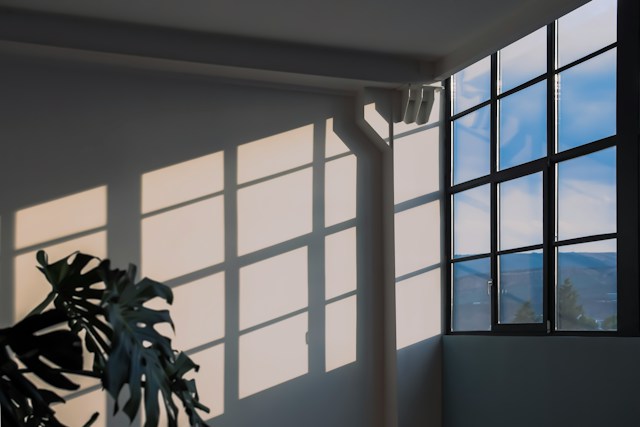Your windows play a critical role in your comfort levels and energy efficiency. When they become damaged or outdated, they can’t perform as well as they should, leaving your home susceptible to water damage, mould, mildew, pests, and other issues.
Fortunately, there are several signs that you should be on the lookout for. Here are five of them:
Cracked or Broken Panes
When windows are cracked or broken, they no longer function as an effective barrier and insulator against the elements. Cold air will enter, hot air will escape, and you’ll have to spend more money heating your home in the winter.
Stress cracks in window glass typically appear as a web of minor scratches, though they can spread rapidly over time. They’re caused by significant temperature variances between the inside and outside of your home, repeated force from slamming them shut, or even everyday mishandling of the windows.
Windows is critical in preventing UV rays that fade and harm fabrics over time. It’s time for a window replacement West Palm Beach if the UV rays from your windows are getting more potent than they used to.
Leaking
If you’ve noticed water seepage around or underneath your windows, it could indicate that they need to be replaced. It is a severe problem that will not only increase your home’s energy costs but can lead to mould, mildew, and structural damage over time.
While some leakage is normal, it should be addressed immediately. Upgrading to new replacement windows is an excellent way to enhance your home’s comfort, save significant money on utility bills, and considerably reduce energy consumption.
Deterioration
Over time, windows are subjected to extreme weather. They may experience high winds, rain, snow, heat, and harmful UV rays that can damage the glass, frame, or seal. A deteriorating window is an indication it’s time to replace it.
Visible gaps along seams, water infiltration around the frames, and difficulty opening or closing them indicate that your windows are outdated and need to be replaced. It’s also a good idea to look for signs of rust or decay around the frames and seals, as these can lead to severe problems that could compromise the safety and security of your home.
Another sign that your windows are deteriorating is when they no longer effectively reduce outdoor noise. If you can hear traffic or neighbourhood noises much more quickly than before, it’s a good indicator that your windows no longer provide adequate insulation.
Difficulty to Operate
It is perfectly normal to experience issues with the operation of windows, especially if they are older. However, if they are consistently challenging to open and close, it may be a sign that the window’s balancing mechanism is wearing out or there are other mechanical problems.
It is also essential that your home’s windows can be easily opened in an emergency, such as a fire or a break-in. A window that is tough to open can hinder your safety and compromise the efficiency of your home. Recognizing the red flags, functional flaws, and visual telltales of improper window installation can help prevent escalating energy bills, moisture complications, mould growth, and structural damage to your home. Recognizing these warning signs ensures your new windows are set up correctly for years of performance.
Visual Damage
If your windows are visibly damaged, it is a clear sign that it is time for an upgrade. Even if the damage does not immediately affect the window’s function, it can lead to moisture leaks that compromise energy efficiency and safety.
Similarly, if you notice condensation between windowpanes or a noticeable fogging, your windows no longer provide the insulation they should. Foggy windows result from seal failure, which allows the dense gasses that separate the panes to leak out and let moisture in.
Lastly, if you notice that your windows do not open and close smoothly, this is an indicator that they may be approaching the end of their life. It is usually due to balance issues, which can cause jamming and sticking.

